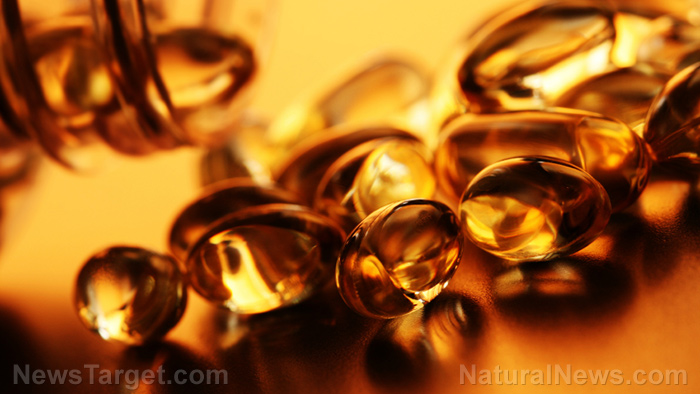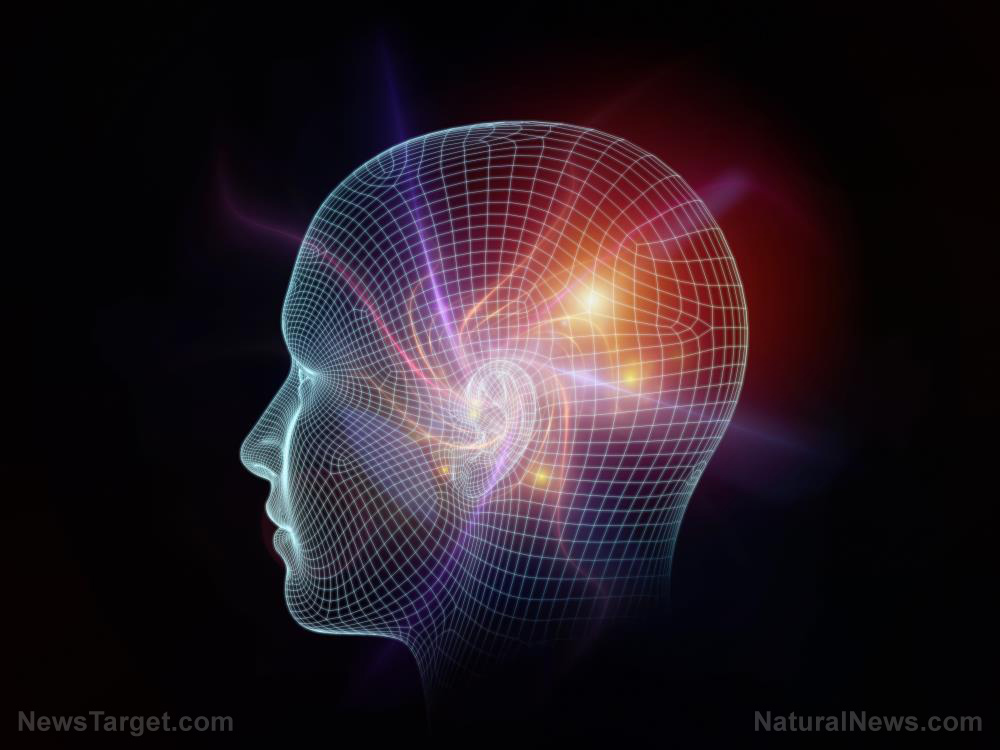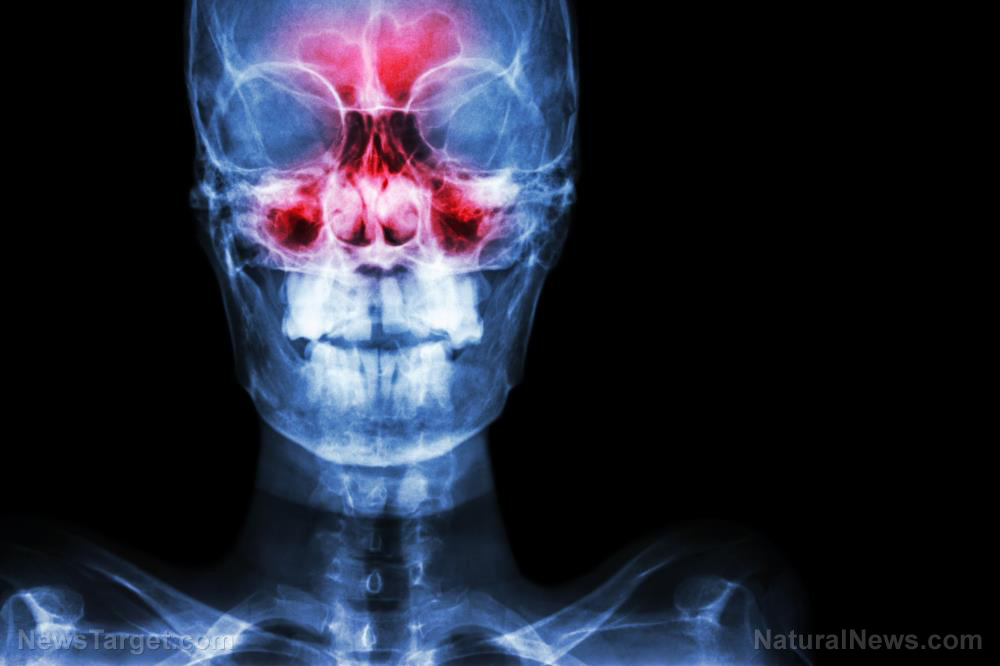An essential guide to understanding B-vitamins
12/27/2019 / By Arsenio Toledo

Did you know that there are eight B vitamins? These are eight of the many essential nutrients that your body needs to keep your bodily systems functioning at optimum performance. What each individual B vitamin does varies, but they generally work to convert food into energy, make new blood cells and keep existing skin cells, brain cells and body tissues healthy.
When people have insufficient levels of B vitamins in their system, they develop a deficiency that can cause all kinds of symptoms, such as anemia, skin rashes, extreme fatigue and depression, to name a few.
When grouped together, these B vitamins are known as a vitamin B complex. Here are the eight B vitamins and their individual benefits.
Vitamin B1: Thiamine
Thiamine is necessary for helping the body break down sugar molecules, produce fatty acids, synthesize certain hormones and create certain neurotransmitters. Thiamine can be obtained by consuming whole grains, pork, trout, black beans and soybeans, as well as different kinds of seeds and nuts.
A thiamine deficiency can cause unwanted weight loss, reduced muscle mass, a diminished appetite and memory problems.
Vitamin B2: Riboflavin
The body needs riboflavin for producing energy and helping the body break down fats, steroid hormones and drugs. Riboflavin is also necessary for converting the amino acid tryptophan into vitamin B3 and converting vitamin B6 into a coenzyme, which are enzymes that help other enzymes function. Organ meats, almonds, mushrooms, yogurt and oatmeal are all foods that are rich in riboflavin.
Having a riboflavin deficiency can cause skin disorders, cracked lips, sores to develop at the corners of the mouth, reddish and itchy eyes and swelling of the mouth and the throat.
Vitamin B3: Niacin
Niacin is made through the conversion of tryptophan. The body also needs a conversion process in order to use niacin. This process involves turning vitamin B3 into a coenzyme called nicotinamide adenine dinucleotide (NAD). NAD is the most used vitamin-derived coenzyme because it is a necessary component in over 400 different enzyme reactions. It’s also important for the metabolic processes of different cells, for the communication between cells and for changing carbohydrates, fats and proteins into energy. Poultry and fish are high in NAD.
Pellagra is the main symptom of vitamin B3 deficiency. Pellagra can affect your appearance by turning your skin brown when exposed to sunlight, creating rough-looking patches on your skin and turning your tongue bright red. It can also cause vomiting and diarrhea, headaches, fatigue, depression and, if left untreated, severe behavioral changes and memory problems.
Vitamin B5: Pantothenic acid
Pantothenic acid is a necessary component carried by red blood cells for the creation of new coenzymes, proteins and fats. Several foods have high amounts of pantothenic acid, including chicken, tuna, beef liver, avocados, sunflower seeds and shiitake mushrooms.
While rare due to its presence in many kinds of foods, even in small amounts, vitamin B5 deficiency does occur. Its symptoms include irritability, headaches, restlessness, poor sleep quality and a numb or burning sensation in the hands and feet.
Vitamin B6: Pyridoxine
Pyridoxine plays a role in more than a hundred different enzyme reactions. It’s also necessary for amino acid metabolism, the breakdown of carbohydrates and fats, brain development and maintaining optimal immune function. Poultry, tuna, salmon, potatoes and chickpeas are all rich sources of vitamin B6.
Vitamin B6 deficiency usually causes a weakened immune system, depression, anemia, a swollen tongue and cracks forming at the corners of the mouth.
Vitamin B7: Biotin
Biotin is a popular supplement for hair, skin and nails. The human body also needs biotin for DNA regulation, cell communication and the breakdown of protein, fats and carbohydrates. Eggs, pork, beef, salmon and sunflower seeds all contain biotin.
Biotin deficiency can cause fatigue, depression, thinning hair, brittle nails and a scaly looking rash appearing around the nose, mouth and eyes.
Vitamin B9: Folate
Folate is essential for cell division, DNA replication and the metabolism of vitamins and amino acids. Its synthetic form, folic acid, is also a popular supplement. Folate can be found in beef liver, eggs, beans, nuts, avocado, papaya, orange juice and many dark green leafy vegetables like cabbage, broccoli and asparagus.
A vitamin B9 deficiency is now increasingly uncommon, but can still be experienced by some people. Its symptoms include general weakness, heart palpitations, headaches and irritability. You may also see changes in your skin, hair and nails and sores might start appearing in your mouth or on your tongue.
Vitamin B12: Cobalamin
Cobalamin is needed by the body for DNA synthesis, the creation of new red blood cells, fat and protein metabolism and maintaining healthy neurological function. It can be found mostly in animal products such as beef, salmon and clams. Vegans and vegetarians usually take dietary supplements for vitamin B12 or they consume fortified foods such as cereals and nutritional yeasts.
A cobalamin deficiency usually causes a megaloblastic anemia, a kind of anemia that can cause unwanted weight and appetite loss, depression, constipation, fatigue and numbness, and tingling in the hands and feet.
While each B vitamin is unique, many of them have overlapping properties and they all work synergistically to keep your body strong and healthy. Eating a balanced diet and taking vitamin supplements will help prevent serious nutrient deficiencies that can negatively affect your body.
Sources include:
Tagged Under: b vitamins, beatdepression, brain health, cognitive health, disease treatments, functional food, heart health, immune system, nutrients, prevention, supplements, vitamin B complex
RECENT NEWS & ARTICLES
COPYRIGHT © 2017 BRAIN NEWS

















